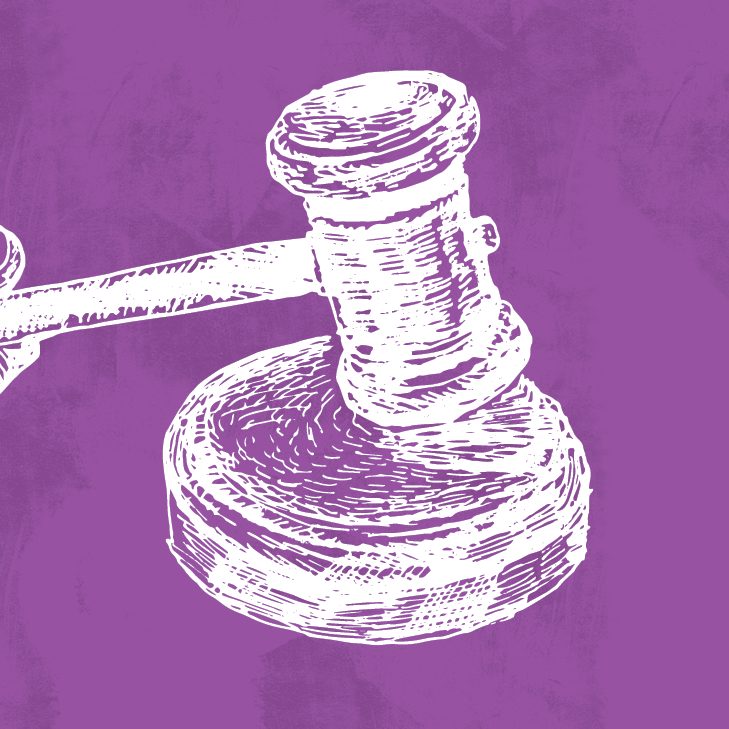- Arbitration
- Banking & Finance
- Capital Markets
- Commercial
- Competition
- Construction & Infrastructure
- Corporate / Mergers & Acquisitions
- Corporate Services
- Corporate Structuring
- Digital & Data
- Dispute Resolution
- Employment & Incentives
- Family Business & Private Wealth
- Innovation, Patents & Industrial Property (3IP)
- Insurance
Find a Lawyer
Book an appointment with us, or search the directory to find the right lawyer for you directly through the app.
Find out more
Level Up: Unlocking Financial Potential In The Middle East
Welcome to this edition of Law Update, where we focus on the ever-evolving landscape of financial services regulation across the region. As the financial markets in the region continue to grow and diversify, this issue provides timely insights into the key regulatory developments shaping banking, investment, insolvency, and emerging technologies.


2025 is set to be a game-changer for the MENA region, with legal and regulatory shifts from 2024 continuing to reshape its economic landscape. Saudi Arabia, the UAE, Egypt, Iraq, Qatar, and Bahrain are all implementing groundbreaking reforms in sustainable financing, investment laws, labor regulations, and dispute resolution. As the region positions itself for deeper global integration, businesses must adapt to a rapidly evolving legal environment.
Our Eyes on 2025 publication provides essential insights and practical guidance on the key legal updates shaping the year ahead—equipping you with the knowledge to stay ahead in this dynamic market.
The leading law firm in the Middle East & North Africa region.
A complete spectrum of legal services across jurisdictions in the Middle East & North Africa.
-
Practices
- All Practices
- Banking & Finance
- Capital Markets
- Commercial
- Competition
- Construction & Infrastructure
- Corporate / Mergers & Acquisitions
- Corporate Services
- Corporate Structuring
-
Sectors
-
Country Groups
-
Client Solutions
Today's news and tomorrow's trends from around the region.
17 offices across the Middle East & North Africa.
Our Services
 Back
Back
-
Practices
- All Practices
- Banking & Finance
- Capital Markets
- Commercial
- Competition
- Construction & Infrastructure
- Corporate / Mergers & Acquisitions
- Corporate Services
- Corporate Structuring
- Digital & Data
- Dispute Resolution
- Employment & Incentives
- Family Business & Private Wealth
- Innovation, Patents & Industrial Property (3IP)
- Insurance
- Intellectual Property
- Legislative Drafting
- Private Client Services
- Private Equity
- Private Notary
- Projects
- Real Estate
- Regulatory
- Tax
- Turnaround, Restructuring & Insolvency
- White Collar Crime & Investigations
-
Sectors
-
Country Groups
-
Client Solutions

- Law Firm
- /
- Insights
- /
- Law Update
- /
- October 2019
- /
- DIFC Court of First Instance enforces Residential Ijara Mosufa Agreement for the First Time
DIFC Court of First Instance enforces Residential Ijara Mosufa Agreement for the First Time
Jonathan Brooks - Senior Counsel - International Litigation Group / Litigation
 The DIFC Courts have considered the terms of a Sharia-compliant Ijara Mosufa Agreement in an action brought by a prominent UAE bank against a residential borrower concerning a property in the DIFC.
The DIFC Courts have considered the terms of a Sharia-compliant Ijara Mosufa Agreement in an action brought by a prominent UAE bank against a residential borrower concerning a property in the DIFC.
This is believed to be the first time an Ijara Agreement has been subject to the Courts’ scrutiny rather than as an agreement only incidental to the issues in dispute before the Courts.
Background
The parties entered into the Ijara Agreement in 2007 for the off-plan purchase of an apartment in the DIFC. In 2009, the apartment was completed and the borrower took possession. The borrower’s payments under the Ijara increased upon occupation, but he immediately fell into arrears and defaulted under the contract. The bank forebeared on the borrower’s default for a number of years as he continued to make payments on an irregular basis.
Eventually, in 2016 the bank terminated the Ijara Agreement and subsequently brought an action in the DIFC Courts seeking the balance of the outstanding payments unpaid by the borrower, both the principal (i.e. rent) and profit sums. The bank also sought orders for unencumbered rights over the apartment, including a declaration of its rights in relation to the DIFC Real Property Register where the borrower’s interests under the Ijara Agreement had been registered. Trial of the dispute was listed for 12 March.
Judgment
The borrower had previously successfully set aside a default judgment against him. However, because he failed to attend trial the Judge used his powers under rule 35.14 of the Rules of the DIFC Courts, which permits the striking out of any defence and allows the claimant to prove its claim and obtain judgment on its claim and for its costs.
In his judgment following the hearing, the Deputy Chief Justice, H.E. Justice Omar Al Muhairi, found that:
- the DIFC Courts had jurisdiction over the dispute as the property was within the DIFC’s territory;
- the Ijara Agreement was stated to be governed by UAE law, and this could properly be interpreted to mean DIFC law given the circumstances of the case;
- the Ijara Agreement was legally enforceable and was validly terminated by the bank when it served a termination notice in 2016;
- the bank was entitled to serve its termination notice because of the borrower’s persistent failure to pay the complete sums due each month;
- the bank’s calculations of what sums the borrower owed, what he had paid and what remained outstanding, could be accurately relied upon;
- the bank was entitled to the sums and declarations it sought. It was entitled to an order directing the DIFC Real Property Registrar to de-register the borrower’s interest in the title, re-possess the apartment and sell it; and
- the bank was entitled to its costs of the action on the indemnity basis.
The borrower was granted leave to appeal on two points: the sums credited to his obligations by the Judge, and the award of the bank’s costs on the indemnity basis. Both appeals were dismissed by the Court of Appeal in a judgment on 2 October 2019.
Significance
The judgment is significant for several reasons.
Firstly, the Court of First Instance had little trouble finding that the DIFC Courts was the correct forum to bring the claim, not least because the property was within the DIFC, and that DIFC law applied to the parties’ relationship. The Court was satisfied that not only were the terms of the agreement capable of referring to DIFC law, but also that DIFC law was the applicable law as a result of the operation of the DIFC Law on the Application of Civil and Commercial Laws in the DIFC (DIFC Law No.3 of 2004), the DIFC Law Relating to the Application of DIFC Laws (Amended and Restated) (Law No.10 of 2005), and the DIFC Real Property Law (no.10 of 2018).
Secondly, the defendant had earlier challenged the Sharia-compliant nature of the Ijara Agreement. However, this allegation remained unparticularised in his pleadings and unsubstantiated in his evidence. The Judge at trial, a highly experienced UAE-trained lawyer, raised no issue regarding Sharia.
Finally, the Court was willing and able to grant the bank a range of remedies in order to recover possession of the apartment for subsequent disposal, as well as to make orders for the payment of sums due and for costs.
Staff from the DIFC Courts accompanied the bank in the possession action, which was concluded without controversy. The DIFC Courts have appointed a bailiff who can work with successful parties in enforcing orders in their favour. There was no requirement for the involvement of the Dubai Police or any other authorities.
Al Tamimi & Company’s International Litigation Group has the largest DIFC litigation team in the UAE and significant experience in DIFC real property disputes, particularly on behalf of landlords and lenders.For further information please contact Rita Jaballah (r.jaballah@tamimi.com), Peter Smith (p.smith@tamimi.com) or Jonathan Brooks (j.brooks@tamimi.com).
Stay updated
To learn more about our services and get the latest legal insights from across the Middle East and North Africa region, click on the link below.


